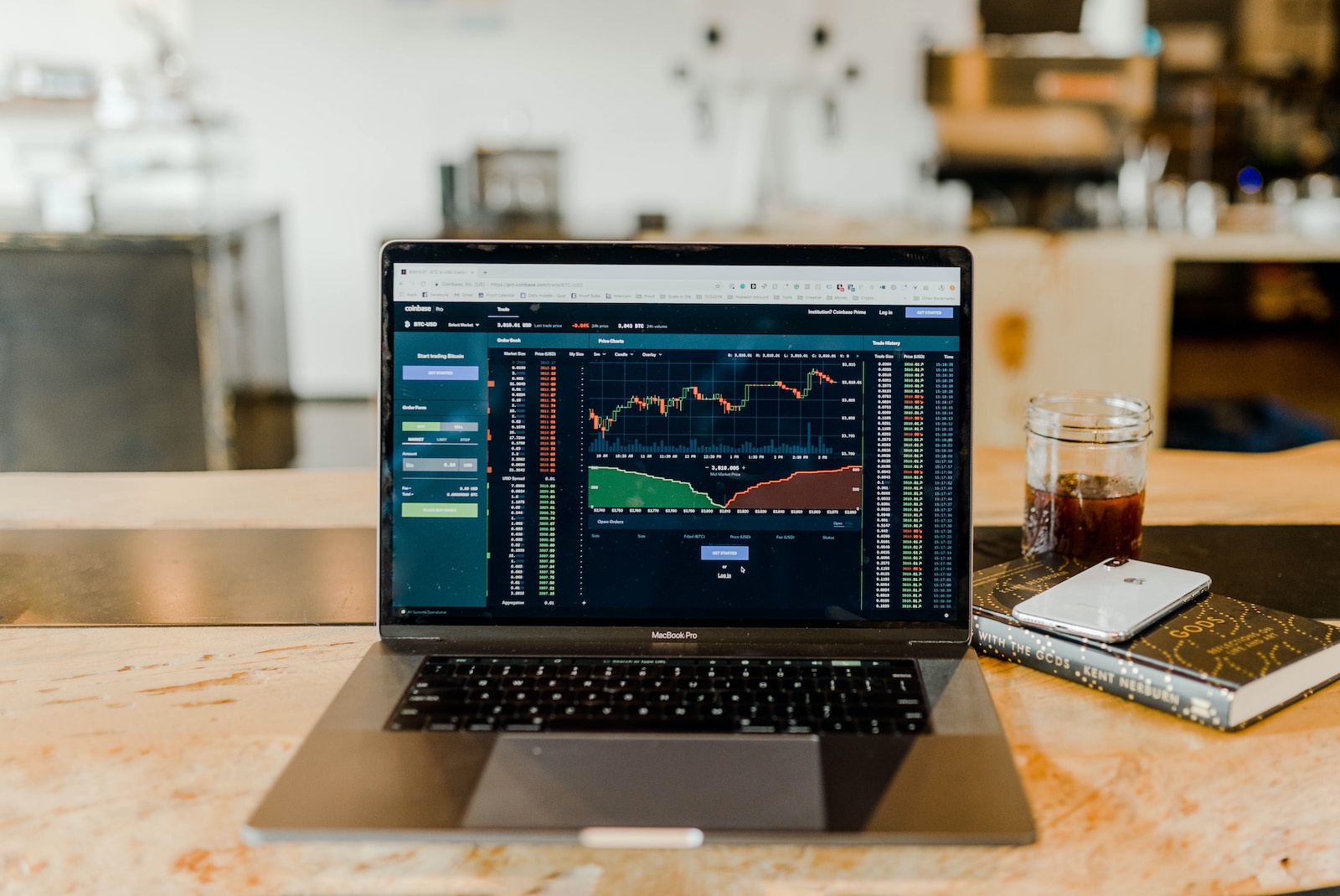Find out the reasons for puts being more expensive than calls in this article!
The world of investing can seem overwhelming at first, but once you learn certain key points, it is fairly easy to understand.
When someone has an investment portfolio, normally there are different asset classes within it. These can be stocks, ETFs, bonds, etc.
Options are another kind of financial instrument, and if you know how to use them correctly, they can sometimes offer more profit and advantages than other asset classes.
Learn the Options Trading Strategies That Really Work
What Is Option Trading?
Options have been around since the 70s, and they, like other financial instruments, can be risky, with declines being more severe than advances at times.
An option, put simply, is a contract that gives the investor the right to buy or sell assets at a specific price before, or on, a certain date.
If an investor has bought a call option, that means he has the right to buy the asset at the agreed price even if it increases in value. This must be done before the agreed date.
If he has bought a put option, then this means he has the right to sell that asset at the agreed price, as long as it is done before or on the agreed date.
The agreed date is known as the expiry date, and the agreed price is referred to as the strike price.
Options are used by a lot of investors because they are a good way to protect against a falling stock market and cut down on losses.
Are Puts More Expensive Than Calls?
When it comes to options, puts are generally more expensive than calls. If you were to compare options that have a strike price equally far out of the money (this means they are relatively higher or lower than the current stock price), you’ll notice that the puts have a higher price than the calls.
Usually, puts also have a higher delta, which measures the probability of a price change.
Why Are Puts More Expensive?
You may be wondering why puts are more expensive than calls. One of the reasons for this price difference is the volatility skew. This refers to the unpredictable changes in the price of the related asset. This, in turn, also means that put option prices are higher (compared to call options that are equally far out of the money), as they are more in demand.
Volatility skew on put options indicates that lower strikes (far out of the money) tend to have greater implied volatility than higher strikes (that are closer to the stock price).
Interest rates also affect asset prices, but more so when it comes to calls. When interest rates are higher, calls are typically more expensive.
However, referring back to our previous point, the main reason for the increase in the price of puts is volatility skew. Implied volatility will increase as the strike price declines. If the strike price increases, then implied volatility will decline.
The Market Decline Scenario
When the market falls, it makes put options more valuable. During a sharp and sudden market decline, put option prices increase, as many market participants are anxious to purchase them in order to protect their portfolios, and they don’t care how much they are paying for them. As a result, they tend to pay high prices to acquire put option contracts.
The investors, who are willing to pay a lot of money to buy put options during a market fall, are the cause of the volatility skew during this kind of market environment.
At the same time, the owners of out-of-the-money put options earn a fair bit of money, while the ones who own out-of-the-money calls don’t.
The Consequences of a Stock Market Crash
When a market crash comes, investors would like to own inexpensive put options, but due to the crash and what was mentioned above, there are no such things as cheap puts at this time due to the high demand.
However, when the market calms down and is back to a normal level of volatility, there are usually not many more cheap puts available, even if they had been reduced to a price that most people could afford.
Therefore, one of the most important factors responsible for expensive put options is that they are more in demand than call options during market crashes.
Final Thoughts
In summary, there are several reasons why puts are more expensive than calls, but it is mainly down to the volatility skew and the high demand for put options.
Investing is a risky business, and those who want to get involved should do so only after they have carried out thorough research and have educated themselves accordingly.
It is advisable to keep up to date with the latest trends in investing, learn about the different methods, and perhaps even speak to someone you know who is involved in it. Ensuring you are fully prepared and informed will prevent you from making mistakes, which lead to horrible losses in the end.
Investing requires both patience and knowledge, so the best way to do well is to make sure you acquire both.
We hope this article has provided you with useful insight as to why puts are more expensive than calls when it comes to options.
Learn the Options Trading Strategies That Really Work
Frequently Asked Questions
How do investors make money buying call and put options?
When investors buy a call option, they can only make money if the stock goes above the agreed price, known as the strike price.
When investors buy a put option, then they can make money only as long as the stock price is below the strike price.
Is buying options profitable?
When an investor buys a call option contract, he can normally profit only when the market moves relatively higher over a short period of time. At the same time, when an investor buys a put option contract, he typically makes money only when the market moves lower over a short period of time.
Most of the time, buying option contracts is not a profitable strategy, unless it’s done to hedge a portfolio in case of a market decline. Most professional option traders are consistently profitable just using options-selling strategies.
Are options riskier than stocks?
Options are sometimes considered less risky than stocks, as they often involve less financial commitment than equities.
They are also used as a very effective form of hedge, meaning they can reduce the risk of a loss on a portfolio of stocks and ETFs. Therefore, this makes them less risky than stocks, as long as the investor is educated on how to use them.
Do you have to own 100 shares of a stock to buy a put?
As mentioned, options are contracts, and each contract refers to 100 shares of a specific stock or ETF. However, investors do not need to own the underlying stock in order to buy or sell a put option.
Can options make you rich?
You can make a decent amount of money with options, as long as you know what you are doing. Each contract controls 100 shares of the underlying stock, which means you can profit more than if you wanted to purchase individual shares.
If the stock ends up increasing by a good amount, you can typically sell your call options for a good amount of profit. Conversely, if the stock moves down substantially, you can normally make money by selling back the put options you previously bought.
Are puts better than calls?
When it comes to comparing them both, there are benefits to both calls and puts. Purchasing puts means you are able to sell your shares at the strike price. If your purchase calls, then you can buy shares at the strike price.
When used properly, both forms of options can offer educated and experienced investors and traders a good amount of protection, leverage, and profit potential.
Learn the Options Trading Strategies That Really Work
Disclaimer
Remember that the options are financial products that carry significant risk. If you have no trading experience, you should seek out professional investment advice before putting any money at risk. Each individual investor should evaluate his or her financial situation and investment objectives before selecting an investment strategy and getting involved in options or stock trading. Potential losses in option trading can exceed the invested capital.
All the content is published and provided for informational and entertainment purposes only. None of the information contained in the content constitutes a recommendation that any particular security, portfolio of securities, transaction, or investment strategy is suitable for any specific person. You understand that the Content Creator is not advising, and will not advise you personally, concerning the nature, potential, value, or suitability of any particular security, portfolio of securities, transaction, investment strategy, or other matter. All of the information contained in the content can not be considered to be investment advice. Such information is impersonal and not tailored to the investment needs of any specific person. Make sure you have checked with your financial advisor and tax accountant to make sure you are suitable to execute what is discussed on this website.

